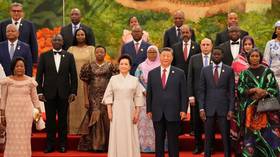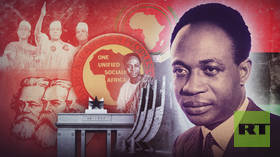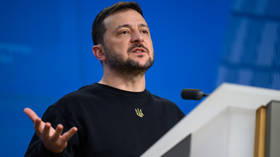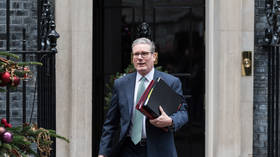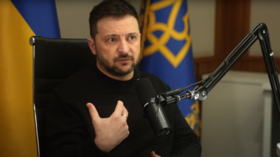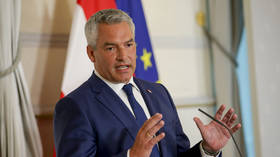Here’s a surprising way Russia helps Africa connect to the Global South
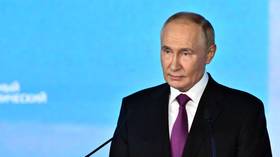
The Eastern Economic Forum in Vladivostok, held annually in Russia’s Far East, has gradually established itself as a key platform for economic and geopolitical discussions. While the primary goal of this event is to strengthen ties between Russia and its Asian partners, it also offers a unique opportunity for African nations to deepen their relationships with eastern countries.
The latest forum, held between September 3 and September 6, garnered significant attention, particularly due to the impactful speech by Russian President Vladimir Putin. In his address, Putin touched on several essential points concerning the state of the Russian economy and his vision for the evolving international dynamics. His speech resonated not only within Russia but far beyond, as it highlighted the emergence of a multipolar world in which countries from the Global South, including those in Africa, are playing an increasingly important role.
Resilience of Russian economy in the face of Western sanctions
One of the central themes addressed by Putin during the forum was the resilience of the Russian economy in the face of economic sanctions imposed by Western countries. Contrary to the expectations of some analysts, Russia appears to have successfully adapted its economy and diversified its trade partners, largely through a strategic rapprochement with Asia.
Since the introduction of economic sanctions in response to the crisis in Ukraine, Russia has strengthened its economic partnerships with Asian nations, particularly China, India, and other countries in the region. The Vladivostok forum provided an opportunity for Putin to emphasize this strategy and highlight the importance of regional integration for Russia’s future development. This pivot towards the East is crucial in compensating for lost trade and in diversifying Russia’s economic opportunities.
This point is particularly relevant for African nations, which are also seeking to diversify their trade partnerships and reduce their reliance on economic relationships traditionally dominated by former colonial and Western powers. The Vladivostok forum thus offers a chance to build a new global economic architecture in collaboration with Russia and other eastern countries.
Infrastructure and energy
Another major theme of Putin’s speech at the forum was the urgency of strengthening strategic infrastructure in the Asian region and beyond. Not only would this infrastructure allow Russia to better connect its remote regions with its trading partners, but they would also pave the way for smoother exchanges with Africa.
Energy and digital technologies were also highlighted as high-priority sectors for Russia. For Africa, these sectors are critical. Many African countries possess vast natural resources that remain underexploited, partly due to insufficient investment in infrastructure and ineffective technologies. A close partnership with eastern countries, particularly in these areas, could thus foster the development of new strategic projects in Africa.
Russia, with its expertise in energy, can offer self-sustaining solutions to help African nations transform their energy sectors. Such cooperation would be mutually beneficial, meeting Africa’s growing energy needs while providing Russia with access to untapped markets.
Multipolar world
Another notable aspect of Vladimir Putin’s address during the Eastern Economic Forum was his direct criticism of the United States and its Western allies, which he accused of seeking to dominate the global economy and provoke international tensions. According to him, the US and the West’s attempt to maintain their economic hegemony is doomed to fail, especially in a context where many nations are looking to break free from this influence.
It is clear that we are witnessing a significant transformation of the global economy, where southern countries, including those in Africa, Asia, and Latin America, are rising in power and playing an increasingly prominent role on the international stage. Globalization has enabled these countries to develop their industries and become integrated into global supply chains, thus fostering their economic growth. Additionally, economic reforms combined with strategic investment in education and infrastructure have accelerated this dynamic.
President Vladimir Putin advocates for a multipolar world order, in which multiple centers of economic power exist and coexist, in opposition to a unipolar world dominated by a single superpower. This vision is shared by a growing number of African countries, which see in a multipolar order an opportunity to break free from the patterns of economic domination inherited from the colonial era.
BRICS and de-dollarization
The BRICS group plays a pivotal role in the rise of this multipolar order. During the forum, Putin mentioned recent interest expressed by numerous countries wishing to join BRICS as they seek an alternative to the Western-dominated economic system. The increasing influence of BRICS shows a clear desire to create a counterbalance to US economic hegemony and promote a fairer model of international cooperation.
In line with this, Putin also addressed the issue of de-dollarization. In recent years, Russia has sought to reduce its dependence on the US dollar in its financial transactions. By excluding Russia from the dollar-based financial system, Washington has inadvertently encouraged Moscow to explore alternatives, notably the ruble or the Chinese yuan.
With the growing interest of African nations in BRICS, this de-dollarization could have major repercussions on the global economy, encouraging other countries to follow the same path. This could lead to a diversification of global currency reserves and gradually weaken the influence of the dollar.
What does it mean to Africa?
For African nations, this shift towards a multipolar world and the search for alternative solutions, such as de-dollarization, represent an unprecedented opportunity to diversify their economic partnerships and build strategic alliances. Africa, rich in natural resources and human potential, can greatly benefit from this situation.
The Vladivostok Forum thus offers a unique opportunity for African countries to engage in constructive dialogue with eastern nations, particularly Russia and China, and strengthen their own economic and diplomatic positions. This forum could mark the beginning of a new era of south-south cooperation, where Africa plays a central role in reshaping global economic balances.
In conclusion, as a participant in this forum, I would say that as geopolitical changes accelerate, the Eastern Economic Forum in Vladivostok stands out as a laboratory for renewed international cooperation. It remains to be seen how African nations will seize this opportunity to build a more resilient and prosperous future in collaboration with eastern countries and BRICS.
The statements, views and opinions expressed in this column are solely those of the author and do not necessarily represent those of RT.
